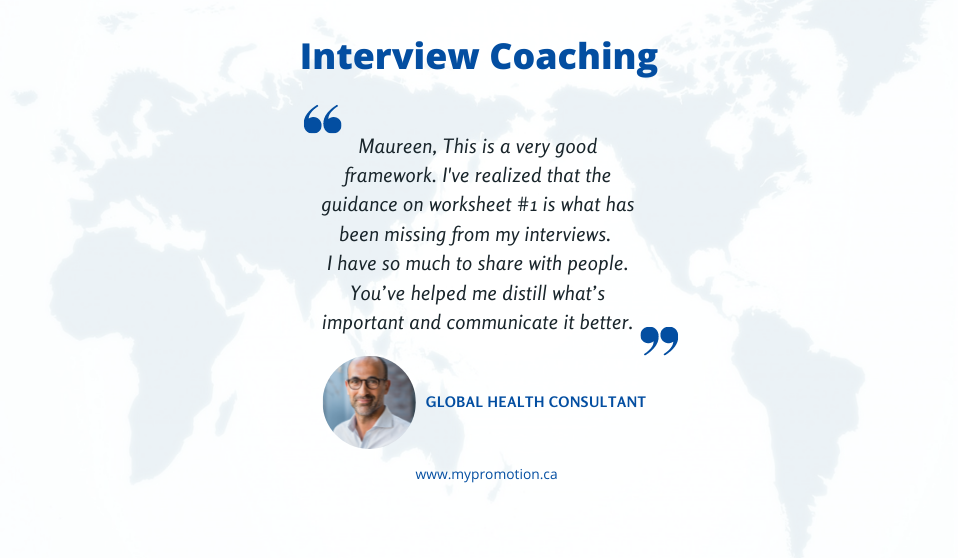
Walker had lost out on his last few interviews. His friend pleaded with him to get some coaching because it was costing him six-figure opportunities.
Last week, Walker read my Linkedin post that outlined the importance of having a plan, knowing your key messages, taking time to practice, boosting your confidence, reflecting on your accomplishments, identifying your blind spots and brushing up on video cues.
I asked him a few questions and within moments knew why those interviews were not going well. Walker was unknowingly self-sabotaging.
When interviewers asked about his experience, he told them e.v.e.r.y.t.h.i.n.g. Every detail he could think of about the overall situation. Walker was so focused on getting the details right, he forgot to talk about the most important thing: Walker!
I suggested he find a way to talk less about the situation and more about the actions he took and the results he achieved. During our work together he shared this:
“Maureen, This is a very good framework. I’ve realized that the guidance on worksheet #1 is what has been missing from my interviews. I have so much to share with people. You’ve helped me distill what’s important and communicate it better.”
Walker needed help to ‘see’ his blind spot and focus his answers on what the employer needed to know about him. It didn’t take much for him to see where he needed improvement and work towards clarifying his stories. He simply needed to stop doing some things and find a better way to do other things.
He’s interviewing today. I have every confidence he’ll do well because he has a plan, practiced his stories and prepared his key messages.
Related Categories: Client Story, Interview Strategy
About The Author
Maureen McCann is an award-winning career coach, master resume writer, and master certified interview, employment, and career strategist whose clients include C-level executives, managers, and professionals in all industries including the Canadian banking, oil and gas, healthcare, IT, and government sectors.
